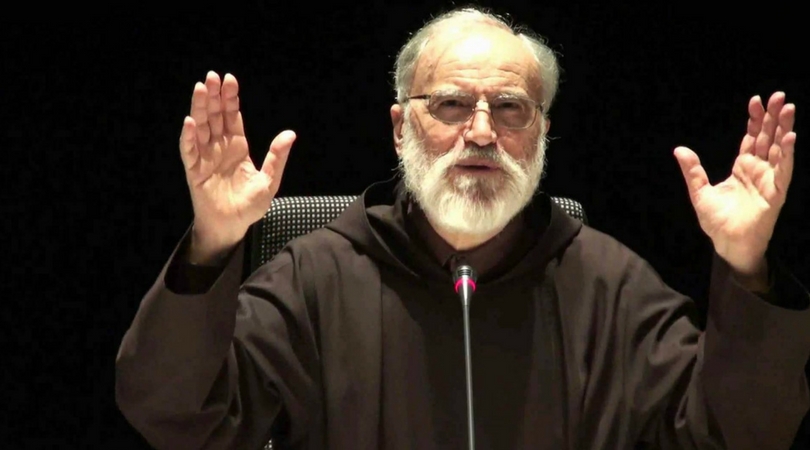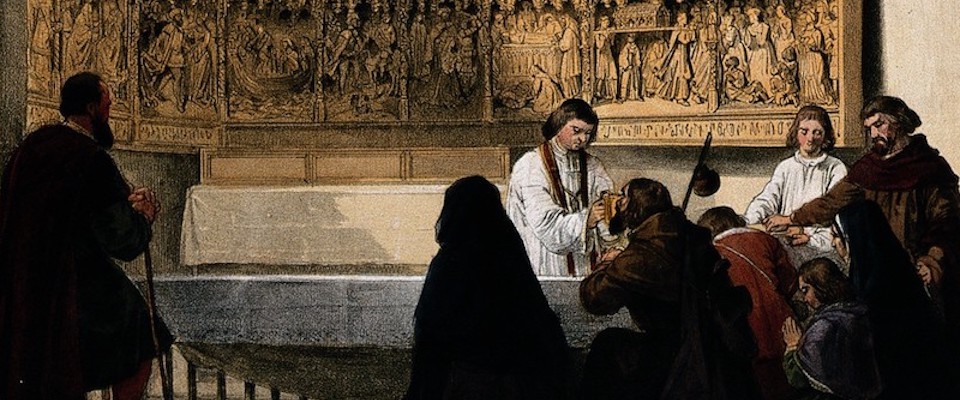Papal Preacher Slams ‘Idolatry of Sex’; Condemns Sexual Immorality

Rev. James V. Schall, S.J.: On the Absurd Stumbling Block
March 28, 2018
Report: Theologian Criticized in Benedict’s Letter Had ‘Seismic’ Influence on Amoris Laetitia
March 28, 2018
By David Nussman, ChurchMilitant, March 27, 2018
ROME (ChurchMilitant.com) – A Franciscan priest who preaches to the pope is condemning sexual immorality.
In a homily from March 23, Capuchin Fr. Raniero Cantalamessa, preacher of the papal household, called out the fact that sins of lust are so rampant today, even within the Church. He preached to Pope Francis and Curia officials, saying, “We live in a society, in terms of morals, that has fallen back into full-blown paganism and full-blown idolatry of sex.”
Later on in the homily, he mentioned priestly-sex-abuse scandals as signs of what happens when concupiscence goes unchecked, saying, “[C]oncupiscence has been unleashed in us; sexuality is no longer peaceful and has become an ambiguous and threatening force that drags us away from the law of God against our will. The daily news of abuses and scandals in this field, including among members of the clergy and religious people, are there to remind us of this bitter reality.”
The homily’s title was “Put on the Armor of Light,” a reference to the admonition in Romans 13:12: “Let us then cast off the works of darkness and put on the armor of light.”
This Scripture passage, Fr. Cantalamessa pointed out, was pivotal in the conversion of St. Augustine of Hippo (recounted in Confessions 8, 11–12).
Father Cantalamessa’s homily to the pope and Curia officials recounted various other Scripture verses as well. He quoted 1 Corinthians 6:13, saying, “The body is not meant for immorality but for the Lord, and the Lord for the body.”
He also cited 1 Corinthians 6:20, saying, “So glorify God in your body!”
These and other passages, according to Fr. Cantalamessa, emphasize to Christians the obligation to attain purity by avoiding sin and giving one’s self over to God. The Capuchin said:
[W]e are not just generically “of” Christ, like His property or something that belongs to Him; we are the very Body of Christ, His members! This makes everything immensely more subtle, because it means that when I commit an impure act, I am prostituting the body of Christ, I am performing a kind of horrible sacrilege. I am committing violence against the Body of the Son of God. The apostle asks, “Shall I, therefore, take the members of Christ and make them members of a prostitute?” (1 Cor. 6:15).
We live in a society, in terms of morals, that has fallen back into full-blown paganism and full-blown idolatry of sex.
At another point in the sermon, Fr. Cantalamessa talked about how modern attitudes tend to downplay sexual sins. He observed that chastity today is often dismissed as less important than love of neighbor.
He claimed that, at times in the past, society might have had a highly warped view of chastity that spawned “neuroses” and blocked love of neighbor. But the modern world, he claimed, has “gone to the opposite extreme, and people tend to minimize sins against purity in the interest of concern (often only verbal) for one’s neighbor.”
“The basic error here,” Fr. Cantalamessa said, “is in pitting these two virtues against each other. The word of God, far from setting purity against charity, instead links them closely together.”
The Capuchin priest preached, “Purity and love of neighbor represent dominion over self and the gift of self to others. How can I give myself if I do not possess myself but am a slave to my passions?”
“It is an illusion,” he explained, “to think that we can combine genuine service to brothers and sisters — which always calls for sacrifice, altruism, forgetting ourselves and generosity — with a life that is personally disordered, all aimed at pleasing oneself and satisfying one’s passions. It inevitably ends in using brothers and sisters, just as one uses one’s body.”
How can I give myself if I do not possess myself but am a slave to my passions?
Speaking about purity and chastity in the life of the early Church, Fr. Cantalamessa noted, “The Apologists, the Christian writers who wrote in defense of the Faith in the first centuries of the Church, attest that the pure and chaste manner of life of the Christians was, for the pagans, something ‘extraordinary and incredible.'”
“In particular,” he continued, “the restoration of the family had an extraordinary impact on pagan society which the authorities at the time had wanted to reform, but they had been powerless to slow down its disintegration.”
Toward the end of the speech, Fr. Cantalamessa said of modern times:
The world has sunk very low; someone has written that sex “has gone to our brains.” We need something very strong to break this kind of narcosis and intoxication with sex. We need to reawaken in human beings a nostalgia for the innocence and simplicity that they long for in their hearts, even if those hearts are quite often covered with sludge.




